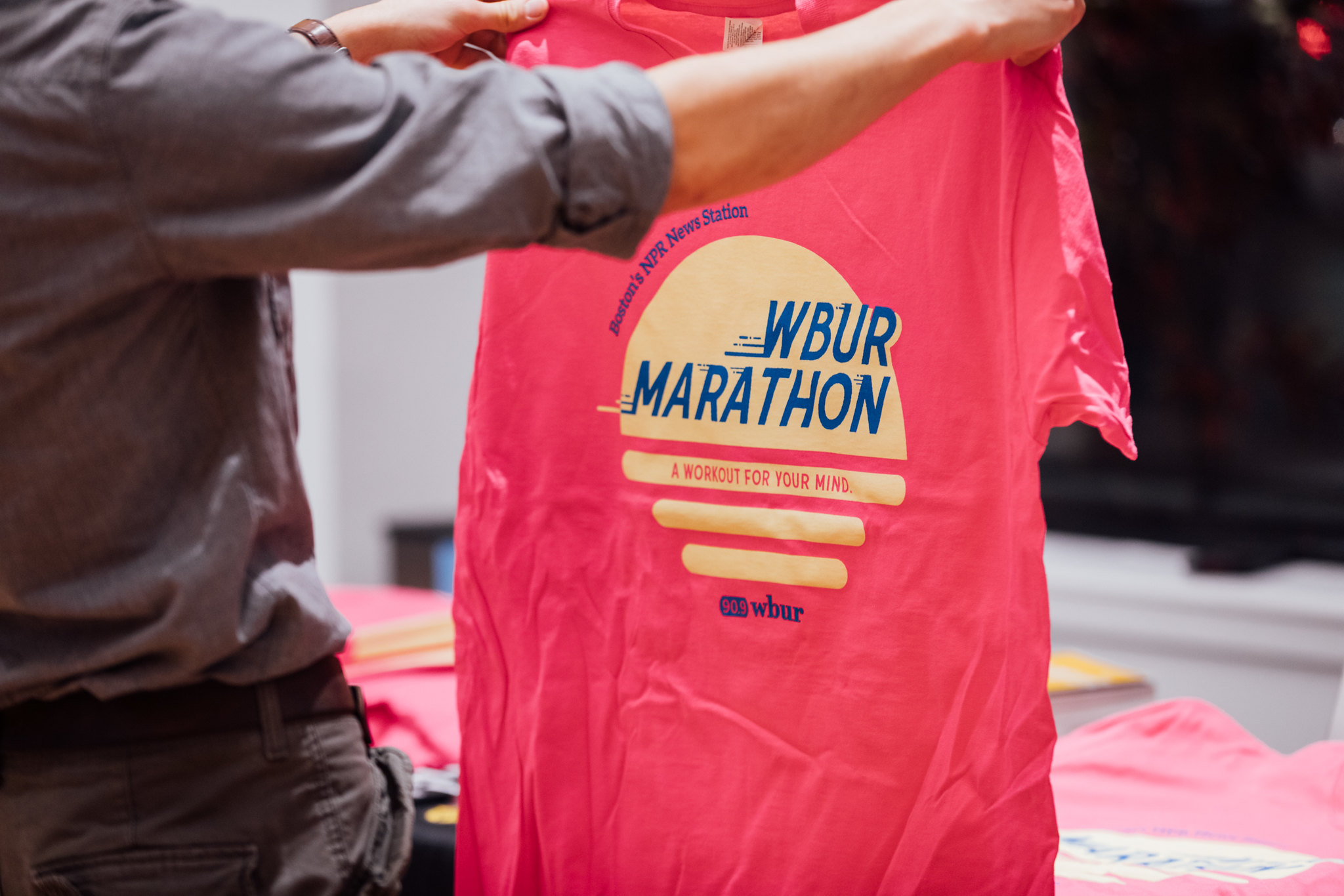
The coronavirus pandemic and the public’s appetite for local coverage of cases, hospitals, and economic impacts are forcing public radio stations around the country to postpone or transform their spring fundraisers and pledge drives. Still, most stations aren’t in a position to skip revenue-raising efforts entirely, especially with advertising and corporate underwriting facing their own struggles.
WBUR, the Boston NPR affiliate, is one of those stations that’s had to figure out a way to move forward. Here’s what station management decided to do.
The station had planned to return to a full eight-day campaign in 2020, after doing a marathon-themed 26.2-hour version for the past few years.
The success of the abbreviated campaign had waned as the novelty did, said Mike Steffon, WBUR’s director of membership and campaign strategy, and the station needed to return to a longer format. (The abbreviated model raised more than $1 million in 2016, but just over $800,000 in 2019.)
Months of planning for the original drive, however, went out the window when the coronavirus closed schools and nonessential businesses in Massachusetts.
Margaret Low — who just took on her role two and a half months ago — leveled with listeners on a morning broadcast and an on-air “letter.”
Hi, this is Margaret Low, the CEO of WBUR. I’ve devoted most of my life to journalism and I can’t think of a story that has been so urgent on a global, national, and local level.
In response to our coverage of COVID-19, we got a note from a listener that captured the need for what we do so beautifully. He wrote: “I can’t tell you what you mean to me, and not just for your ample, valuable, reliable information, but for your courage and steadfastness. I experience each and every one of you as a well known friend.”
His note kind of says it all — we’re shut into our homes for who knows how long, longing for deep reliable reporting, for connection to one another. We’re here for you, and we need you now more than ever too. We need your support to continue the vital work we’re doing. Please give, as generously as you can, at WBUR.org. Thank you for listening, and for your enduring support.
Steffon, who’s been at WBUR for 20 years, couldn’t recall another time when the CEO addressed listeners directly. (Other local news organizations are making similar pleas.) Low said the station has been “hit hard” by a loss in underwriting and anticipates further losses.
“We thought it was important to pull the curtain back,” Low said. “One of the most powerful things about our medium is that it’s very intimate. We wanted to explain the situation we were in and why it felt so urgent right now.”
The station decided to move the date of its blitz fundraiser up a week after realizing that coronavirus projections showed cases in Massachusetts might peak during their planned campaign. WBUR journalists, working from home or separate studios, were hyper-efficient with their pitch breaks, whittling down the typical 5-minute breaks to spots between 90 seconds and three minutes. Back-and-forths between hosts were traded for a more direct appeal.
“We made quick work of it,” Steffon said.
The final results were encouraging. WBUR hit its seven-figure goal, raising $1,016,794 from 6,963 donors in just 13 hours. (A half-marathon!) This year’s total was 25 percent more than last year’s, with 18 percent more donors contributing.
The most loyal listeners — donors who had given to the station within the last year — were particularly supportive. Steffon said 44 percent of them made an additional gift during the drive.
Originally, high-dollar donors to the station were scheduled to gather for a gala dinner in the high-ceilinged John F. Kennedy Library on May 11. Instead, guests will now attend virtually — enjoying the contents of packages sent to them from WBUR containing highball glasses, cocktail ingredients, and local hors d’oeuvres, all “from the comfort and safety” of their homes.
The gala’s new name? “A Night In Together.”
Mary Hull, the station’s director of development, said the station didn’t want to present a “watered-down gala” but an event radically different in tone.
“What felt appropriate two weeks ago may not be appropriate today,” Hull said. “With everything happening around us, we do not see this as a celebration as we have in past years, but more as a moment to bring our community together in support of the essential service we provide.”
The previously announced guests — Michael Barbaro and Lisa Tobin of the New York Times podcast The Daily — will be interviewed by the station’s Washington-based political correspondent, Kimberly Atkins. (Tobin is a former WBUR employee, starting out as a local Morning Edition field producer and eventually shaping the WBUR iLab that launched the station’s first podcasts, Hull noted.)
The shift to a virtual event also allowed the station to confirm additional guests — including late night host Conan O’Brien, a native of nearby Brookline, and NPR’s Scott Simon, who will interview him.
“We see this shift to a virtual event as an opportunity to secure nationally recognized guests since they will not have to travel to participate,” Hull said.
Individual tickets cost $750, and hosting a table runs between $7,500 to $50,000. The station hopes to give table hosts the ability to speak to their guests separately, Hull said.
WBUR has long relied on flower-delivery fundraisers tied to Valentine’s Day and Mother’s Day. Delivering fresh flowers for May 10 — Mother’s Day in the United States — is unlikely this year and WBUR will have to rethink the long-standing tradition.
“It’ll force us to be really creative about something that’s been standard practice,” Low said. “It won’t be business as usual.”